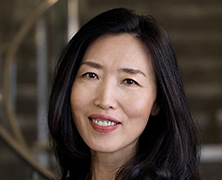Look For Opportunity to Expand Your Comfort Zone
As Deputy Managing Director of the Bank of Canada’s Canadian Economic Analysis Department, Jing plays a key role in setting Canada’s monetary policy. Jing came to Canada from China to pursue a PhD in economics and has since worked at prestigious institutions including the Bank of Canada, the Bank of England, the Bank for International Settlements, and the European Central Bank. Through her diverse experience, Jing has developed a rare combination of breadth and depth of professional knowledge in key functions of central banking. She thrives on working on challenging issues, especially using a multidisciplinary approach. Jing began working on Agent-Based Modelling and artificial intelligence (AI) almost 15 years before the field was recognized in mainstream economics. She is now striving to leverage AI in monetary policy decisions. Jing led the timely assessment of negative interest rates as monetary policy option in Canada. She has won the Bank of Canada’s top awards for innovation and collaboration for two consecutive years.
Jing’s personal experience and curiosity about human behaviour help foster the Bank of Canada’s diverse and inclusive workplace. “If diversity is to invite people to your party then inclusion is to get them dance. We want to create an environment where different opinions can be heard to avoid group thinking and make better policy decisions.”
Jing’s colleagues see her as a leader who embodies intellectual leadership, infectious enthusiasm, authenticity, and good sense of humour. Her advice to women building their career: “pull each other up not down; seek out advice from the busy people in your organization; look for opportunity to expand your comfort zone”
Jing’s take about pay equality: The gender pay gap in my industry can be explained by the underrepresentation of women at senior levels and overrepresentation in junior roles. Studies show that with equal qualifications, women are much less likely to apply for a senior level position than their male counterparts. This could be due to a number of factors such as lack of self-confidence and appetite for risk, not enough role models, and institutional factors. More effort is required to encourage women to apply for senior roles through initiatives such as mentoring and coaching.







